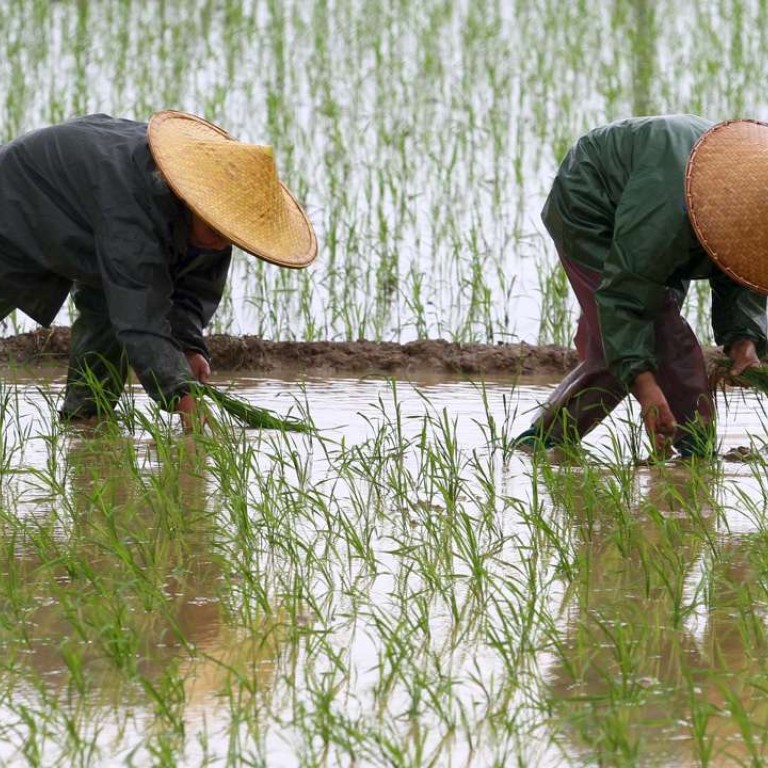
Seeds of hope as DuPont unit strikes licensing deal with China’s Origin Agritech
DuPont Pioneer, the seed improvement and genetics unit of American chemicals giant DuPont, has struck a deal with Chinese crop seed technology firm Origin Agritech to develop new seeds to meet the needs of Chinese farmers spurred by Beijing’s call to improve crop productivity.
The two firms said they have come to a “commercial licensing agreement” to develop new seed technologies for the China market, without elaborating.
“This combined effort will contribute to the modernisation of China’s agriculture system and improved food security, which the government has set as priorities,” DuPont Pioneer said in a statement on Tuesday.
The pact came two months after state-owned China National Chemical Corporation (ChemChina) agreed to buy DuPont’s rival Swiss crop seeds and pesticides firm Syngenta for US$43 billion, in what would be China’s largest overseas acquisition deal if completed. It is pending regulatory approvals.
The deal was widely seen as a move for China to acquire know-how to boost food productivity and security.
The acquisition followed close on the heels of DuPont’s US$130 billion all-stock merger with US rival Dow Chemical in December, which is also pending regulatory approval, including anti-monopoly scrutiny in various nations.
That merger had raised concerns that it would make it harder or more expensive for China to gain access to foreign biotechnology to improve crop productivity. DuPont Pioneer’s deal with Origin and the Syngenta acquisition by ChemChina could ease such concerns.
China has more than 20 per cent of the world’s population but less than 10 per cent of its arable land. Hence food security is at the forefront of government policy priorities. Beijing’s first policy directive issued every year usually concerns agriculture.
Beijing has not generally allowed the cultivation of genetically modified crops except for cotton and papaya, and many Chinese consumers are suspicious of foreign crop technology after a string of food safety scandals at home over the years. But the nation imports a large amount of genetically modified soya beans, mainly from the United States.
But in this year’s first directive, China’s cabinet, the State Council, for the first time said genetically modified crops should be “cautiously promoted” provided public safety is ensured. This came soon after President Xi Jinping voiced his support for developing genetically modified crop technology.
The Ministry of Agriculture has issued permits to two scientific research groups to produce two types of pest-resistant rice and a kind of high-yield corn for five years, according to state-run People’s Daily.
In the nation’s recently released development plan for the five years to 2020, crop supply self-sufficiency and safety was mentioned as the key objective for the agricultural sector, and biotechnology named as one of the key industries to be encouraged for development.
DuPont, an Iowa-based 90-year-old firm, said Origin has successfully developed corn seeds with insect control and herbicide tolerance traits, with support from the Ministry of Agriculture and in partnership with the Chinese Academy of Agricultural Sciences.
“Once approved by the Chinese government, these products will help our country’s farmers fight the insects and weeds that prevent their corps from reaching their yield potential, said Han Gengcheng, chairman of nine-year-old Beijing-based Origin Agritech.
The firm said its “transgenic” corn was the first to receive the “bio-safety certificate” from the Ministry of Agriculture.
The Nasdaq-listed firm’s share price soared 31 per cent to US$1.75 in New York on Tuesday.

